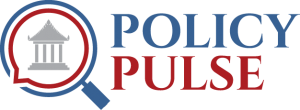Background
Founded by Ou Virak in late 2015, Future Forum (FF) is an independent think tank that focuses on nurturing new thinkers and researchers, connecting them in a supportive community, and partnering with them and others to identify and advance policy solutions to mould a better future for Cambodia. FF represents a dynamic response to addressing capacity gaps in policy making in Cambodia.
- Vision: A just, democratic, dynamic, and prosperous Cambodia shaped by the needs of its people.
- Mission: To achieve our vision, we nurture a new generation of thinkers, connect them in a supportive policy community, and partner with them and others to identify and advance evidence-based policy solutions to mould a better future for Cambodia.
- Values: To guide our work and decisions, we have five core values (CRISP): Creative, Rights-based, Inclusive, Supportive, and Positive.
- Goal: Better evidence-based policies are being developed by new thinkers and are adopted and implemented in the long term, with policy outcomes that are more relevant and responsive to the needs of the Cambodian people.
Future Forum’s Strategies
1. FF focuses on nurturing a new generation of thinkers and researchers through our learning and change programs.
● Young Researchers Program (YRP) is an intensive, one-year policy research training and coaching program designed to empower Cambodian youth to become competent in policy research and analysis such that they can influence and contribute to shaping public policy discourse by serving in government, civil society, tertiary education, research institutions, or through other means. YRP is structured into two parts: a six-month training on basic research and policy understanding and a six-month fellowship for policy development and publishing policy papers. Each year Future Forum recruits two cohorts: Cohort 1 starts in January and Cohort 2 starts in July. Up to 25 young research fellows (YRFs) per cohort are accepted into the program through a highly competitive, nationwide selection process. Participants are selected from diverse backgrounds, including but not limited to young professionals, university graduates, and marginalized groups (women, people with disability, LGBT+, indigenous people, minorities, and those who belong to under-represented communities).
● FF also organizes bespoke training in coordination with institutional partners to support new thinking and executive program for established research and policy professionals and leaders.
2. FF builds a community of policy analysts and advocates and provides a crucial space for collaboration and the exchange and incubation of ideas through providing a physical co-learning/working space, facilitating networking and learning events, and serving as a communications platform.
● The Hub: is the physical co-working space for the community of researchers to undertake their research, network, and collaborate. It is designed as an incubator and accelerator of policy solutions. The key components of The Hub include a library, database, and co-working/co-learning space.
3. FF partners and collaborates with our alumni and others to support research, the development of policy solutions, and strategies to advocate for new ideas and engender debate.
● Policy Forums: FF holds four key policy forums:
1. Governance Forum: Peace, public administration, aid funding, civil-society, media, politics and foresight, civic education, and citizenship
2. Living Forum: Environment, climate change, energy, urbanisation, accessibility, community design, housing, and transport infrastructure
3. People Forum: Migration, identity, population, gender, empowerment, arts, and culture
4. Development Forum: Human development, health, food security, education, and the economy
● Publications: bring together the ideas of the young researchers we are nurturing, those we are connecting in the policy community, and those we are partnering with on research, through the Journal of Future Cambodia and Big Book of Small Ideas.
Partnership with Ponlok Chomnes
The partnership with Ponlok Chomnes centers on nurturing a new generation of thinkers in research and public policy spaces through FF’s flagship Young Researchers Program to develop and advocate for positive policy solutions that ultimately see policy outcomes that are more relevant and responsive to the needs of Cambodian people. Concurrently, FF will channel the fund to improve its organizational development as well.
Please click here for publications by Future Forum under Ponlok Chomnes Phase I.
Please click here for more information about Future Forum.

